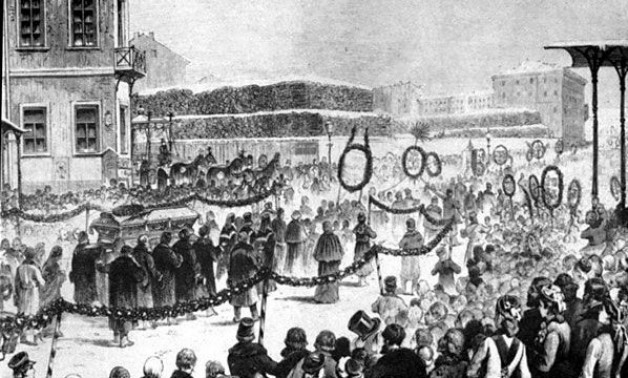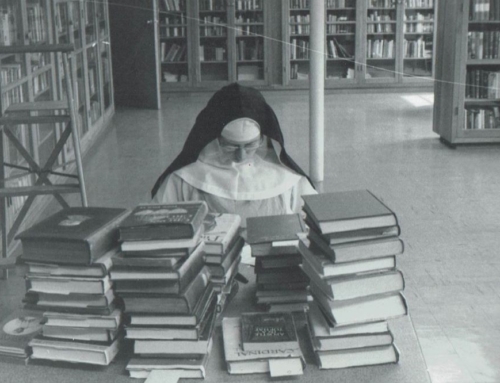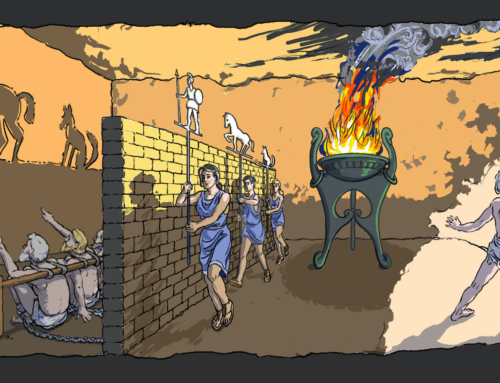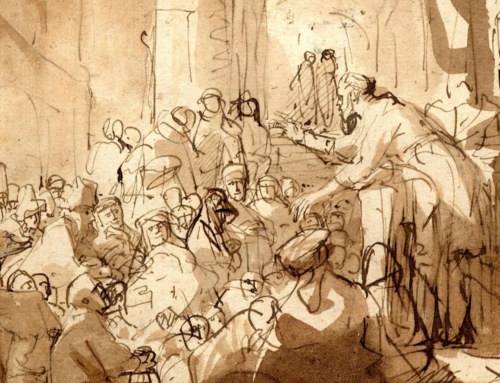I often find myself in dialogue and discussion with atheists about the existence of God, the nature of human persons, the knowability and viability of the natural law, among other Catholic philosophical and theological loci. Generally it is a stimulating and educative experience for me, and hopefully for my friendly interlocutors. But sometimes, after an hour or more of conversation, I start to feel that something is missing, that we are not really talking about the real issue or the most fundamental point. This experience brings to mind one of my favourite passages from Fyodor Dostoyevsky’s The Idiot. In the passage, Prince Myshkin, the hero of the story, is relating to his friend Parfyon his own experience of conversing with an atheist:
One morning I was traveling on a new railway line and spent four hours talking on the train with a certain S., having only just made his acquaintance. I had heard a good deal about him before and, among other things, that he was an atheist. He’s really a very learned man, and I was glad to be talking with a true scholar. Moreover, he’s a man of rare courtesy, and he talked with me as if I were perfectly equal to him in knowledge and ideas. He doesn’t believe in God. Only one thing struck me: it was as if that was not at all what he was talking about all the while, and it struck me precisely because before, too, however many unbelievers I’ve met, however many books I’ve read on the subject, it has always seemed to me that they were talking or writing books that were not at all about that, though it looked as if it was about that.
After telling three more stories about belief and unbelief, the Prince offers his conclusion:
Listen, Parfyon, you asked me earlier [about belief], here is my answer: the essence of religious feeling doesn’t fit in with any reasoning, with any crimes and trespasses, or with any atheisms; there’s something else here that’s not that, and it will eternally be not that; there’s something in it that atheisms will eternally glance off, and they will eternally be talking not about that.
Let’s be clear: the Prince is no Thomist (nor is Dostoyevsky). The notion of God’s existence, the natural law, theological claims, etc., do fit in with reasoning, as St. Thomas makes so powerfully and eloquently clear in his voluminous works. It is good and right to engage atheists in conversation, dialogue, and debate. Nevertheless, I think Dostoyevsky is at least partially right: these conversations, if they turn only on intellectual questions and knowledge claims, remain eternally unsatisfying, and perhaps for Thomistic reasons. For we are not just embodied intellects, but rational beings with a rational desire for ultimate happiness that goes beyond mere knowledge acquisition. For St. Thomas, following St. Augustine, we are made not just in the image of any god, but in the image of the Triune God. This means that just as God is a knower and a lover, so too are we knowers and lovers. And for us to be satisfied, for those infinite desires we find enshrined in our finite flesh, we need both our intellects and our wills to be fulfilled. The intellect alone, no matter how important, is not enough! Listen to St. Thomas on the beatific vision, our true and only end, from his Compendium theologiae:
The beatific vision entails immutability in the intellect and will. As regards the intellect, its question ceases when at last it comes to the first cause, in which all truth can be known. The will’s variability ceases, too; for, when it reaches its last end, in which is contained the fullness of all goodness, it finds nothing further to be desired. The will is subject to change because it craves what it does not possess. Clearly, therefore, the final consummation of man consists in perfect repose or unchangeableness as regards both intellect and will.
Both intellect and will, this is where St. Thomas and Dostoyevsky can help us in reflecting on conversations with atheists, or anyone for that matter, regarding truths of the faith. If we are speaking merely of the truth of Christianity and not the loveliness of it, we are offering only part of the story. At the risk of mawkish sentimentality, Christianity is not just about knowing the truth; it is also and crucially about being in love. The debating of Christianity as merely an intellectual exercise will remain unsatisfying to us and, I suspect deep down, to our interlocutors as well, although they may be unwilling to openly admit it.
All this is to say that defeating the Knight of Error with the Sword of Truth is of no real significance unless one goes on to attain the Lady of Charity. Which, I suppose, is also to say, with St. Paul, that “If I have prophetic powers, and understand all mysteries and all knowledge, and if I have all faith, so as to remove mountains, but have not love, I am nothing (1 Cor 13:2).”
St. John, at the end of his Gospel, recounts a very important conversation: Jesus reconciling Peter and restoring him to head of the Church. And Jesus’ question is as relevant today as it was then: “Simon, son of John, do you love me?”
✠
Image: V. Porfiryev, Dostoyevsky’s Funeral







